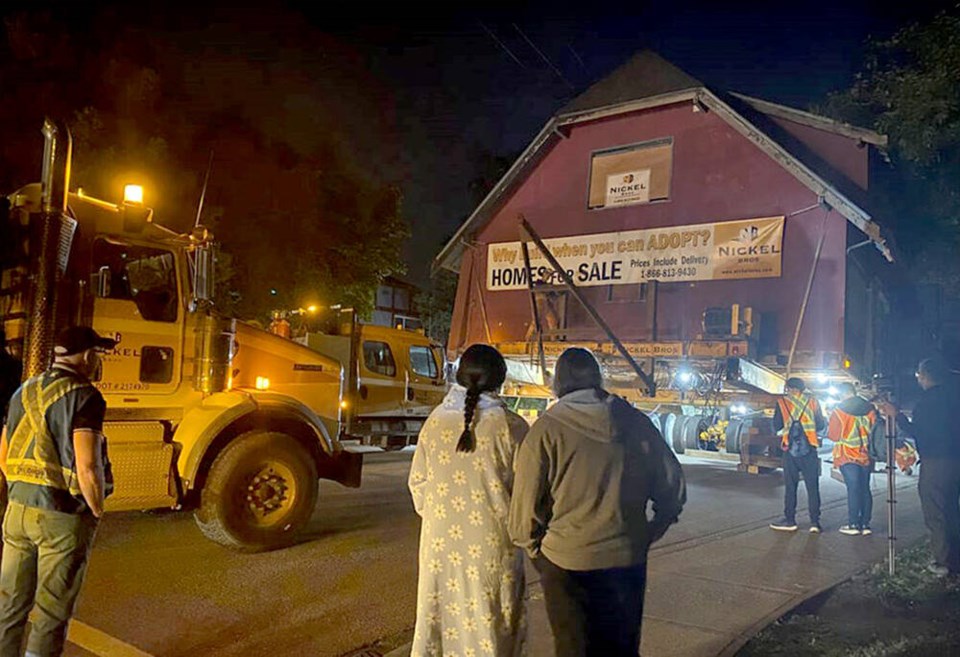Port Moody will look at ways it might be able to encourage developers to save and repurpose homes rather than tear them down to make way for new projects.
Tuesday (June 27), councillors voted to bring the matter to a future meeting for further discussion after a presentation by Glyn Lewis, the president of Owner Renewal Home Development — a Vancouver-based company that works to save, relocate and repurpose homes for new owners, often in remote First Nations communities.
Lewis, along with Jeremy Nickel, the owner of longtime house moving specialists, Nickel Bros., told council about 2,800 single-family homes are demolished in Metro Vancouver every year — approximately seven every day.
In fact, Nickel added, the region has a reputation in the building industry as the “demolition capital of the world.”
But, Lewis said, many of those homes are still in good enough condition they could provide shelter or serve other purposes with a little fixing up; they’re just in the wrong place.
“Homes are obstacles to developers,” he said. “They could be a lifeline for people needing homes,” especially in remote communities where the cost of constructing a new home from scratch can be prohibitive.
However, said Lewis, with few incentives and little impetus, most developers are happy to spend the $30,000 to $50,000 it can cost to demolish each home to expedite progress on their new projects.
And with cities like Port Moody densifying, the problem is only going to get worse.
Lewis said not only is demolition expensive, it’s wasteful as each wood-frame home that is torn down releases about 65 tonnes of embedded carbon into the environment and creates about 100,000 kg of material waste.
While Port Moody recently adopted bylaws to encourage developers to recycle and reuse materials from homes they’re demolishing, Lewis said incentives like expediting building permit procedures would go a long way toward getting them to consider relocating entire homes.
“Machine demolition should be the last option,” he said.
“It’s a real shame,” added Nickel, whose company has moved about 12,000 homes since it was founded in 1956.
While many of those may just travel a few blocks in the middle of the night, Nickel Bros. has made a specialty of loading homes onto barges for transport to communities that may not be served by roads.
Even factoring that cost in, saving, moving and fixing up a home slated for demolition can still be 30 per cent of the $1,000 a square foot it can cost for a new build in those areas.
Many residents in remote First Nations communities just can’t afford that, Nickel added.
Coun. Kyla Knowles said the idea makes good business sense.
And with more than 50 single-family homes facing demolition when permits for the redevelopment of Port Moody’s Coronation Park neighbourhood are finally approved, there’s potential to create several homes for communities that need them.
Mayor Meghan Lahti said how to make that happen can be investigated by staff once it’s given direction by council.
Sound off: Do you think cities should create incentives for developers to move and repurpose single family homes rather than tear them down to make room for redevelopment? Send us a Letter to the Editor. Be sure to include your full name and city of residence.



